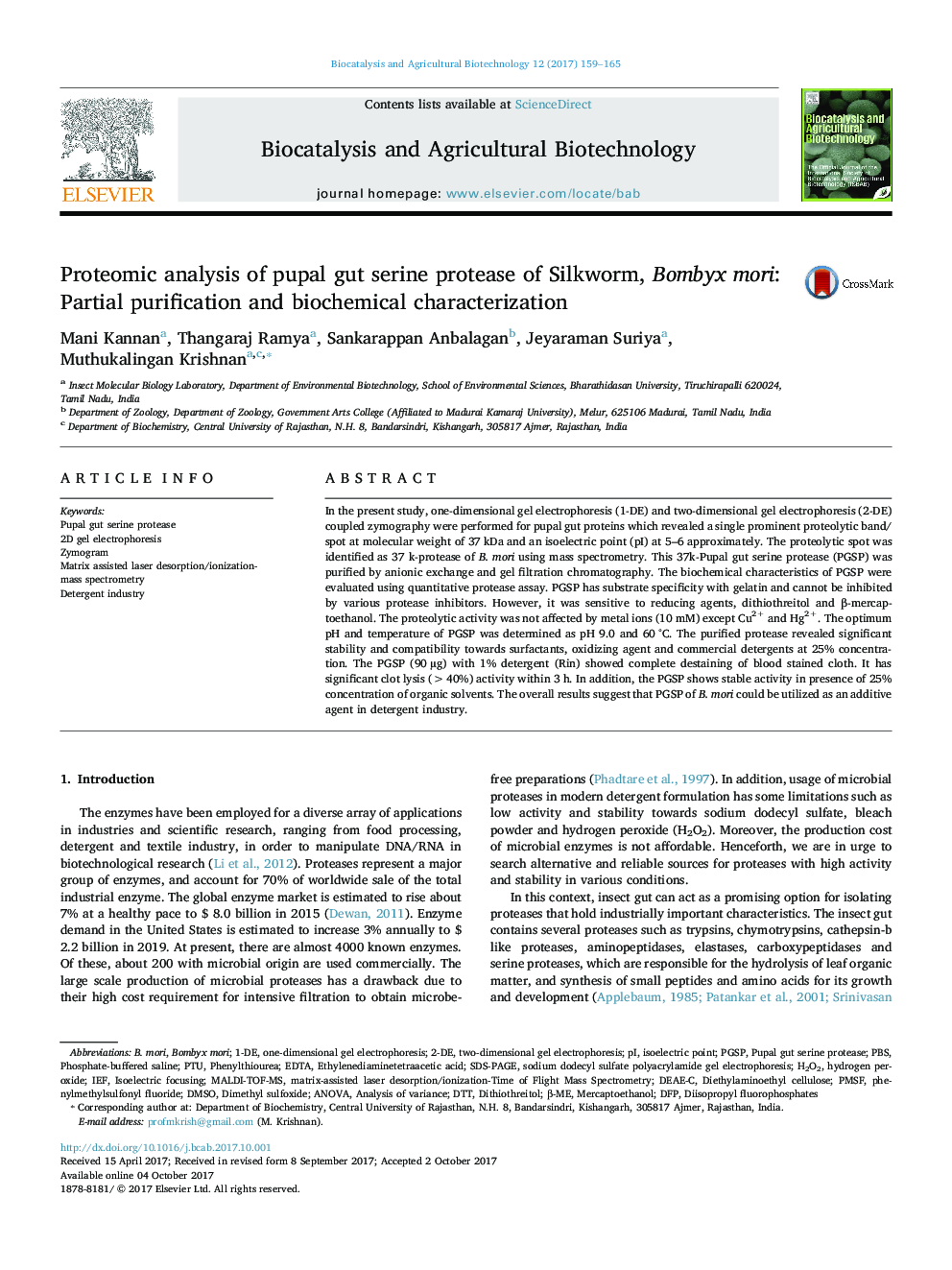| Article ID | Journal | Published Year | Pages | File Type |
|---|---|---|---|---|
| 5520440 | Biocatalysis and Agricultural Biotechnology | 2017 | 7 Pages |
â¢2DE-zymography and mass spectrometry for silkworm pupal gut protein was performed.â¢The pupal gut specific protease was identified as 37 kDa protease of B. mori and the PI was noted between 5-6.â¢The purified PGSP reveal stable activity at alkaline pH (>9) and optimum temperature (>60 °C).â¢The PGSP shows compatibility with metals (10 mM), Surfactants, commercial detergents, and solvents (25% concentration).â¢The PGSP shows blood stains removal and blood clot lyses activity.â¢The versatility of PGSP has potential application as biological detergent and enzymatic debriders.
In the present study, one-dimensional gel electrophoresis (1-DE) and two-dimensional gel electrophoresis (2-DE) coupled zymography were performed for pupal gut proteins which revealed a single prominent proteolytic band/spot at molecular weight of 37 kDa and an isoelectric point (pI) at 5-6 approximately. The proteolytic spot was identified as 37 k-protease of B. mori using mass spectrometry. This 37k-Pupal gut serine protease (PGSP) was purified by anionic exchange and gel filtration chromatography. The biochemical characteristics of PGSP were evaluated using quantitative protease assay. PGSP has substrate specificity with gelatin and cannot be inhibited by various protease inhibitors. However, it was sensitive to reducing agents, dithiothreitol and β-mercaptoethanol. The proteolytic activity was not affected by metal ions (10 mM) except Cu2+ and Hg2+. The optimum pH and temperature of PGSP was determined as pH 9.0 and 60 °C. The purified protease revealed significant stability and compatibility towards surfactants, oxidizing agent and commercial detergents at 25% concentration. The PGSP (90 µg) with 1% detergent (Rin) showed complete destaining of blood stained cloth. It has significant clot lysis (> 40%) activity within 3 h. In addition, the PGSP shows stable activity in presence of 25% concentration of organic solvents. The overall results suggest that PGSP of B. mori could be utilized as an additive agent in detergent industry.
Graphical abstractDownload high-res image (235KB)Download full-size image
